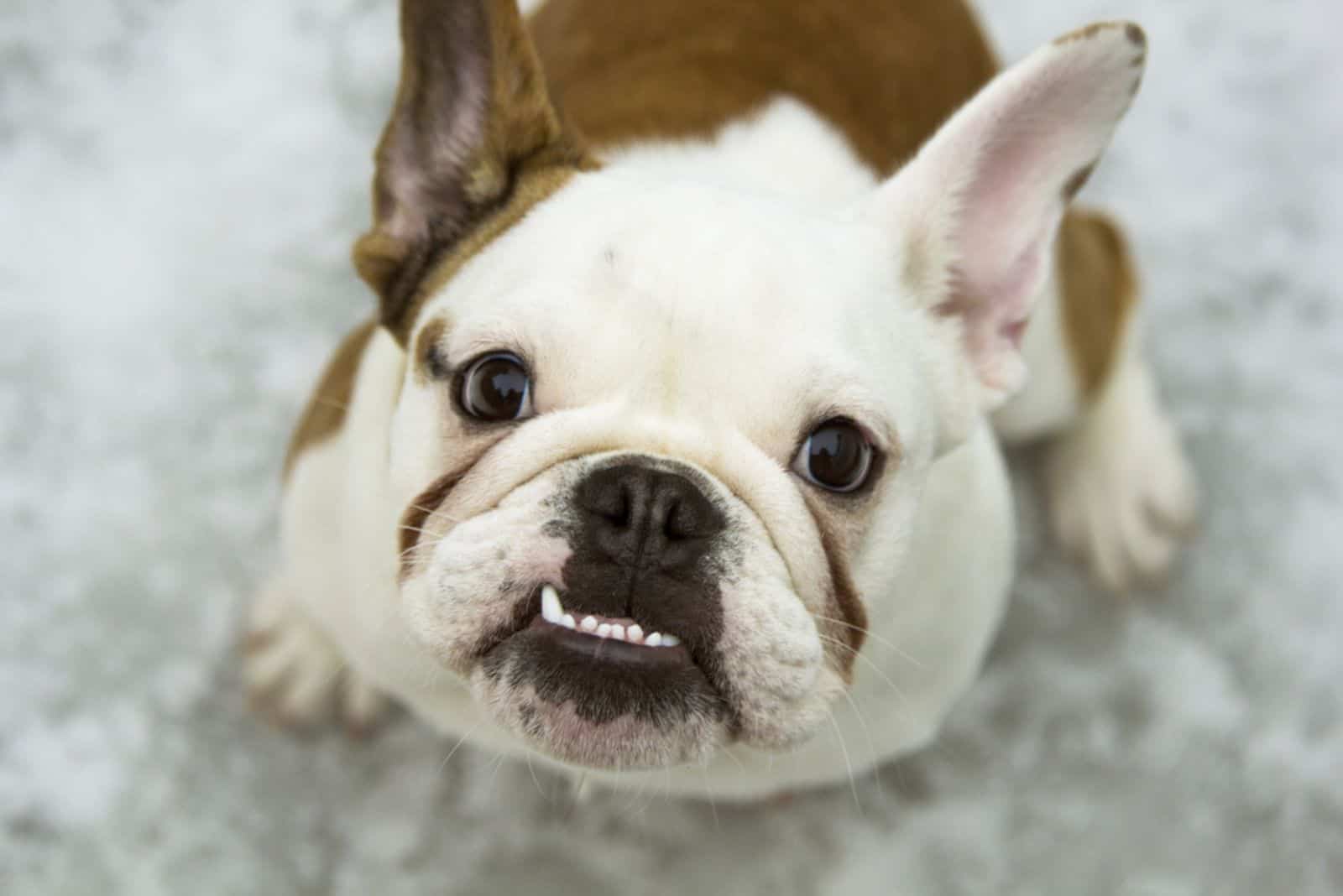Among the many behaviors that dogs exhibit, one that’s seemingly harmless, but can signal a great number of health issues is the chattering of teeth, which is why many dog owners often ask why do my dog’s teeth chatter?
The answer to the question of why your dog’s teeth chatter is most often tied to a variety of dental health issues or anything afflicting the oral cavity which causes such behavior.
That said, there are a few other, less harmful causes that can cause it too, ones that dogs share with humans, which could be either sheer cold or a great amount of anxiety or fear.
And, while the latter two can be an issue of their own depending on the source and the level of exposure, they’re easily solved and often only last a brief period of time..
The ones revolving around the dental issues, however, can lead to a lot of longer term discomfort for your canine companion.
After all, nobody likes their mouth getting messed with as it’s hard to keep it from hurting, given how often it’s used in both food consumption and communication, and dogs are no different.
So, if you’re curious about finding out what the most common causes of teeth chattering are and what can be done about it, be sure to read on.
Why Do My Dog’s Teeth Chatter: The 3 Main Reasons
1. He’s Cold
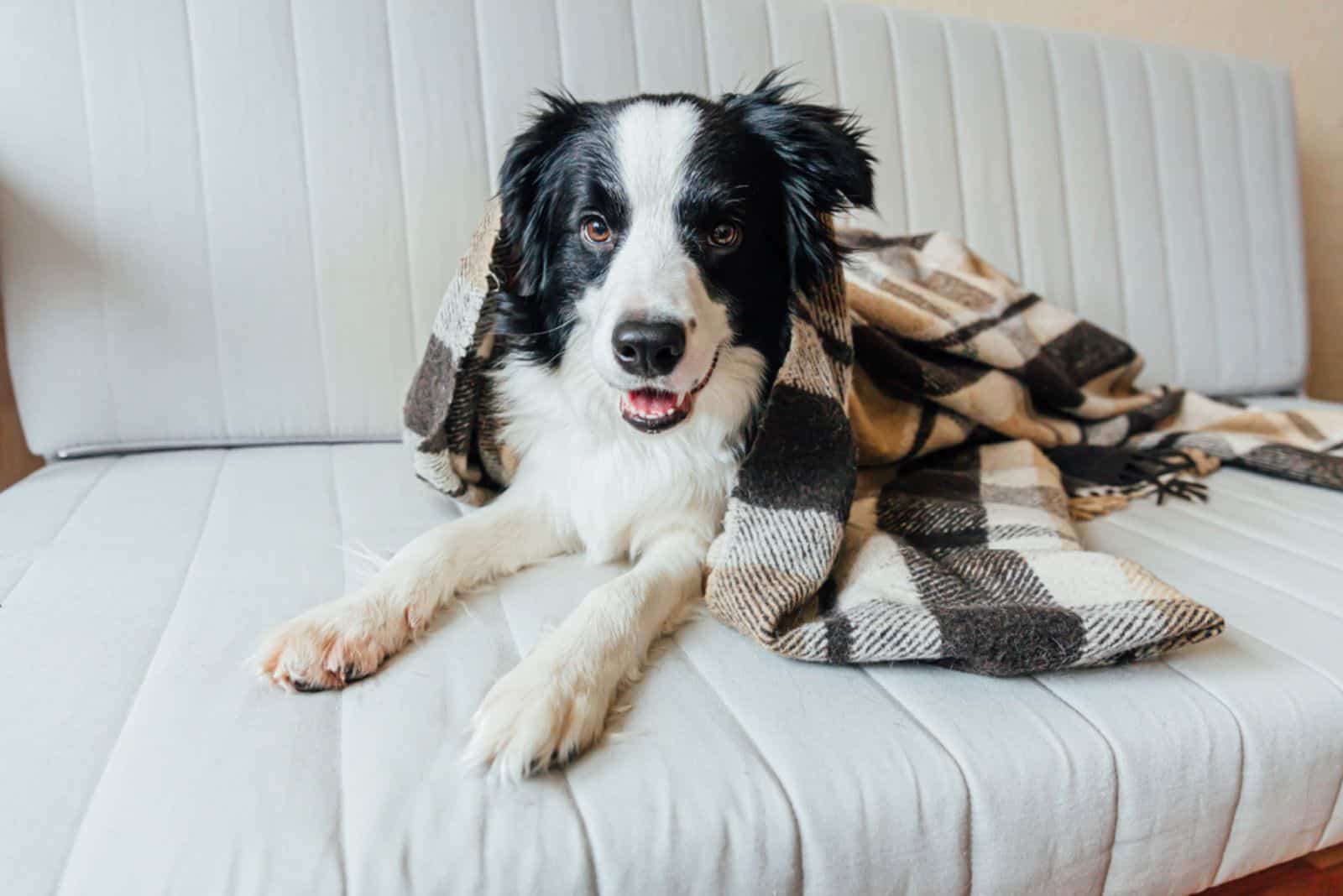
While dogs don’t normally feel the cold, certain short breed dogs or dogs living in areas with more extreme climates can experience being cold.
Dogs like Chihuahuas, Great Danes and Dobermans, and other similar breeds are the ones most prone to these and can be a challenge to raise in colder places like Canada or the more Nordic countries of Europe.
Should they have an experience with cold weather, or even the AC being cranked a bit too low on the temperature scale, you may end up seeing their teeth chattering a lot sooner than yours would given their higher sensitivity.
Thankfully, if you own one of these dogs, the solution is simple, warm them up as best you can.
For the smaller breeds, the more common solution is getting them some doggy clothing like a comfy sweater.
Alternatively, you can always provide your dog with his own personal blanket or make sure his place of rest is a comfy and warm area where he can always run off to in order to get a little more toasty.
Of course, cuddling helps too, but this is a temporary solution and requires your attention.
2. He’s Afraid Or Anxious
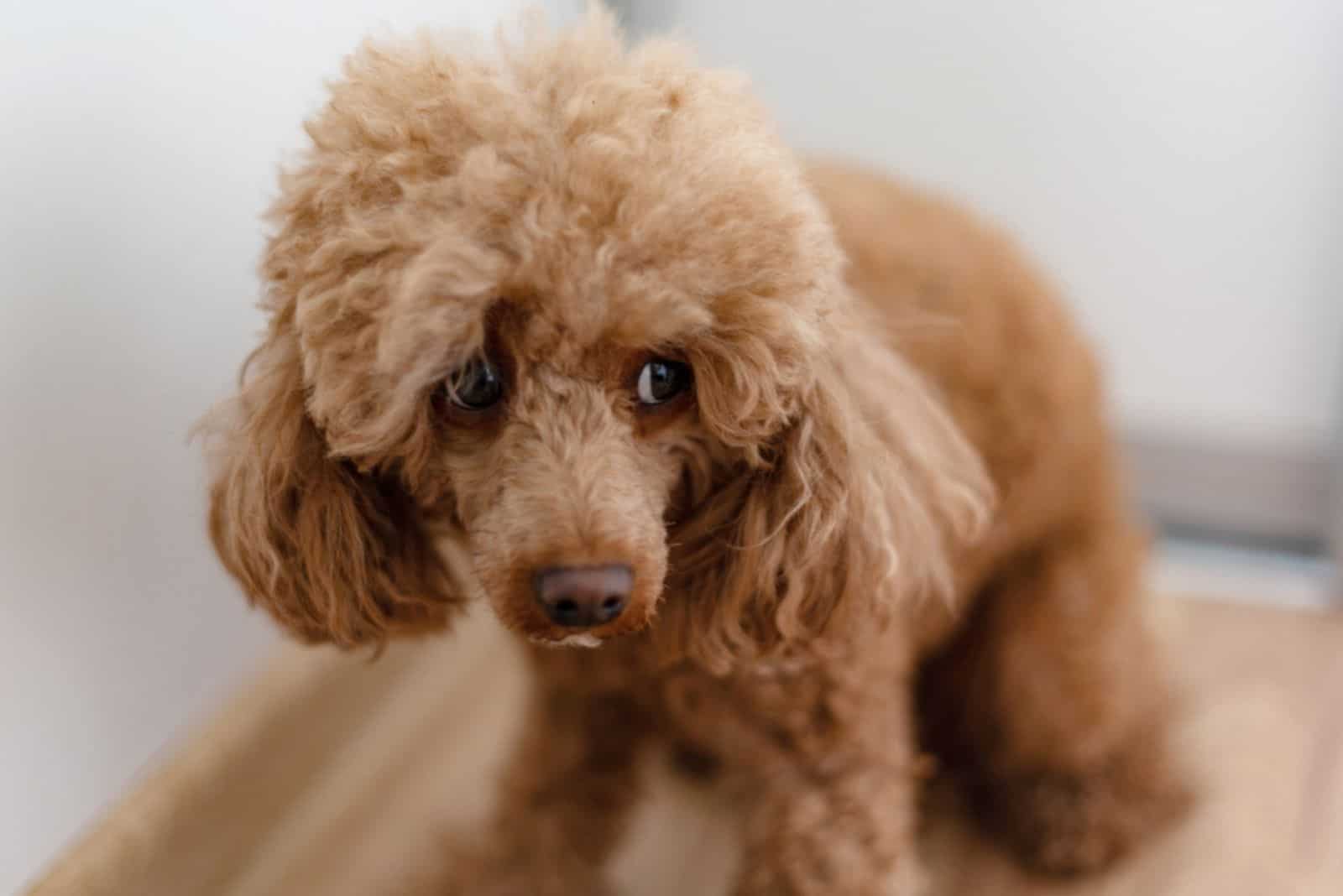
Emotions are some of the most powerful manipulators as far as our bodies are concerned, fear and anxiety in particular.
They can cause a great number of unwanted physical reactions that we can’t control, ones that are tough to manage, teeth chattering is one of the milder ones.
If you’re certain that your dog is physically healthy and that the temperature is set just right, but for some odd reason, your dog’s teeth are still chattering, then anxiety or fear may be the cause.
Though, you’re likely to notice it coming at least when fear is concerned as it’ll be preceded by him running toward you or away from the source of his fear, most commonly needles, loud noises or other events that he perceives as dangerous.
As far as anxiety goes, that one can accompany the fear, but it can also surface all of a sudden due to a particular trigger, known or unknown.
It’s often accompanied by the shaking of the body and general restlessness as well.
If your dog is experiencing either of these problems, the best thing you can do is to make him as comfortable as you can.
You can’t directly eliminate the problem, but showing your care and affection for the pooch and creating a safe environment for him will help it subside faster.
If, however, these are frequent occurrences or nothing you do is working, call a vet or a pet behavior expert for advice on what to do next.
Anti-anxiety medication is an option, but it should be the absolute last resort to go toward after every other route has been exhausted.
3. It’s Some Sort Of Medical Reason
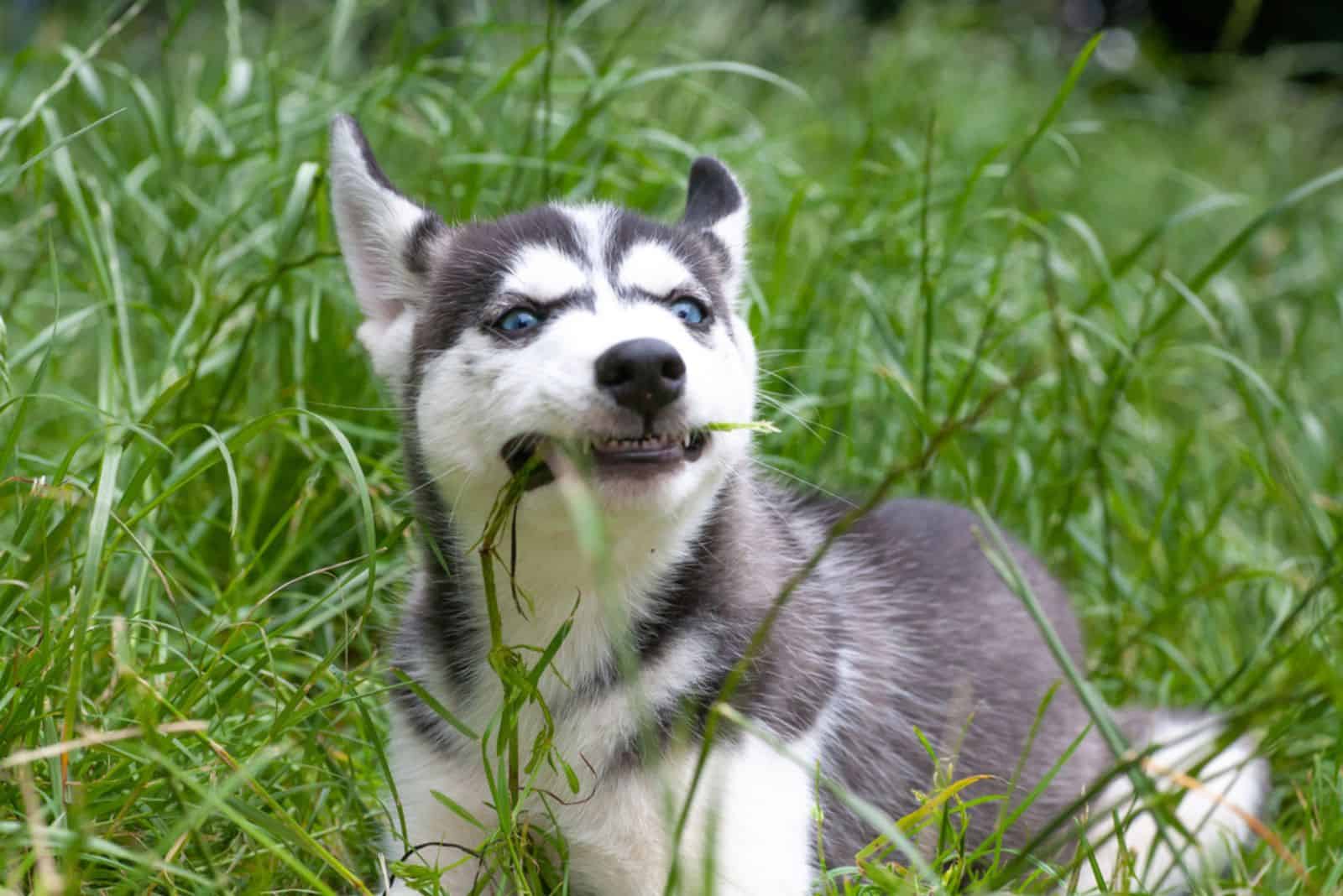
The most varied reason on this list relates to health issues, considering just how many of them can have some sort of muscle spasm as a symptom, or, in this case, teeth chattering uncontrollably.
Most of these are tied to the oral cavity, but some can even link to your dog’s ears due to an infection.
The ones linking to the mouth itself are most commonly caused by some sort of muscle spasm which causes the twitching of the jaw, in turn producing the chattering.
Alternatively, it can be due to a broken or infected tooth which is irritating a particular nerve, which then leads to the aforementioned chattering issue.
Naturally, this is only one of the many other potential symptoms that come alongside a particular health problem, making the exact issue easier to discern, and summarily easier to treat and cure.
In some particular instances, like with some forms of cancer, which can also have chattering teeth as a symptom, that may not be the case though.
Seizures are another nasty one which can have teeth chattering as one of the aftereffects due to nerve damage or something similar, epileptic attacks in particular which tend to shorten a dog’s lifespan greatly for that very reason.
Do The Medical Problems Related To Teeth Chattering Have Any Other Recognizable Symptoms?
They most certainly do, which is what helps the vet pinpoint the exact cause of the problem and whether or not it’s something that can be cured.
For seizures, for instance, the dog won’t be responding to you when said seizure is ongoing as his nervous system will be too overloaded to be able to process it and you’ll be able to clearly tell when it’s ongoing.
As for the moments prior to an attack, you’ll be able to note restlessness in your poor pooch or his inexplicable desire to just stick next to you as he’s sensing the oncoming seizure and wants to be around someone who’ll keep him safe.
The issues revolving around ear infections are going to be figured out by the vet through a proper checkup or a CT scan to determine whether it’s the cause of the teeth chattering or not.
The infection itself will be easy for you to notice though, so don’t hesitate in phoning the veterinarian up to schedule said checkup.
As far as dental and oral problems are concerned in general, those have a broader selection of symptoms for you to keep an eye out for.
Excessive drooling is pretty common if a mouth issue is a problem as well as staying away from his kibble and wanting to get something that he won’t need to chew as long, something softer that won’t cause him further pain.
Speaking of which, whining, while not really a symptom, is a sign of pain, which will be pretty common if the source of it is located in his mouth as it’s one of the dog’s main tools for interaction.
Going back to the food bit, you’ll see that even if he does get softer food, he’ll often have it drop out of his mouth as he struggles not to put pressure on the inflamed area.
A loss of appetite is also pretty common when the dog’s mouth is in pain and his jaw is chattering as he often won’t feel like it’s worth it to chow down.
This can then lead to malnutrition or general weight loss, none of it healthy.
Finally, bad breath can also be a sign, albeit a terribly unreliable one, of a potential infection in the mouth itself, usually tied to an abscess or something similar.
What Are Some Of The Lesser Known Reasons For A Dog’s Teeth Chattering?
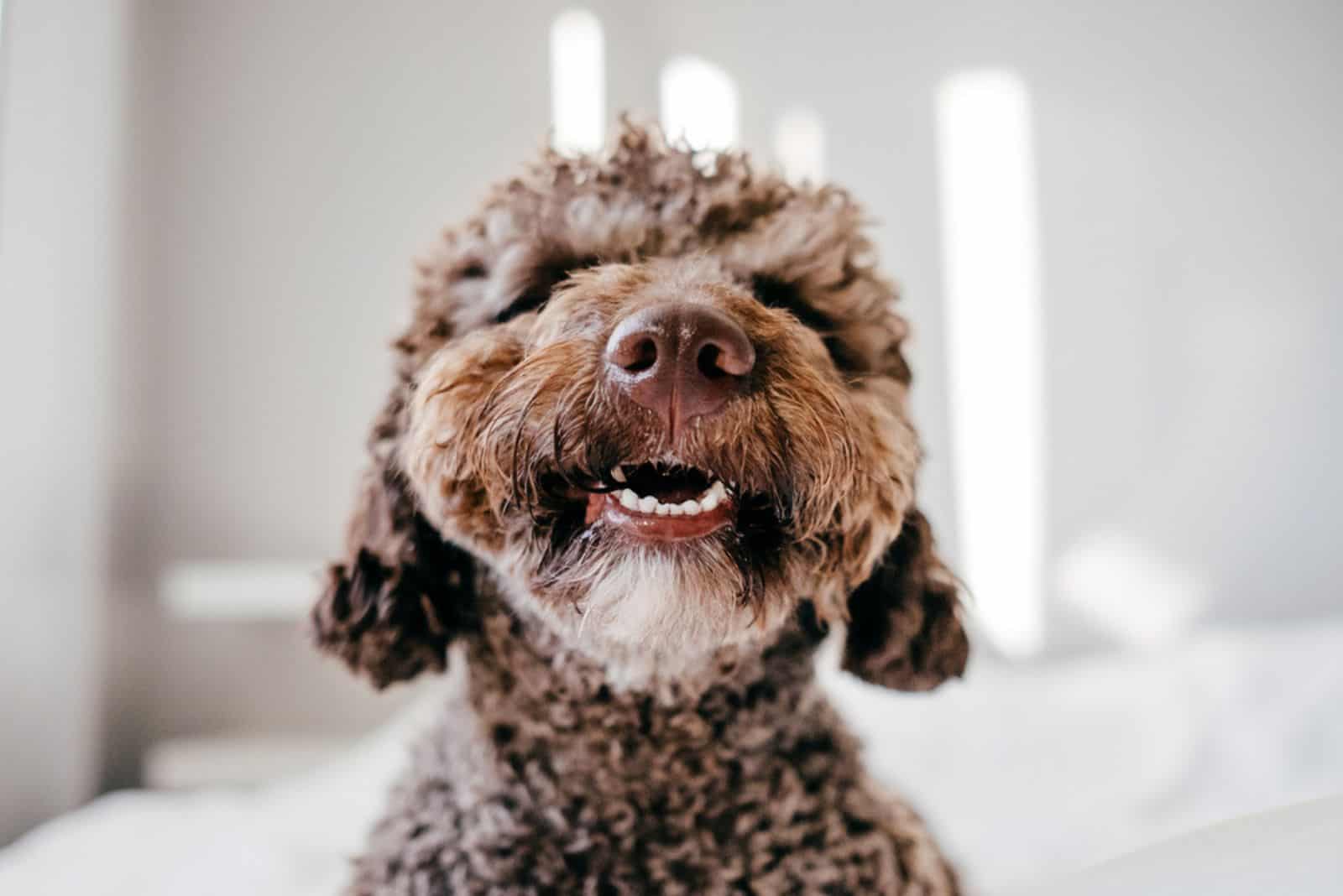
While less common, there are two that I’m familiar with in particular, and those are related to a show of excitement or focused sniffing.
The former is essentially the literal meaning of “to shake from excitement”, and in the dog’s case that includes his jaw and teeth if said excitement is too great.
The latter is usually seen when the dog is in focus, trying to suss out a new, unfamiliar scent, or the pheromones of a nearby mate.
In that particular circumstance, the dog’s teeth chatter from the strain he’s imposing on his muzzle to try and take in as much of the scent as he can and use his vomeronasal system to process it better.
In Conclusion
Why do my dog’s teeth chatter? A question asked by many dog owners given how unexpected the behavior often is.
That said, the reasons behind it are similar to that of humans, be it a reaction to the cold, fear, or a medical condition.
It’s often tied to the nerves themselves which is why the action is often involuntary.
In the cases where it’s voluntary, it’s usually caused by the dog shaking with excitement quite literally or due to his attempt of getting a more accurate read when tracking a new scent or sniffing out pheromones.
It all depends on the context in which it happens, and it’s important for you to act quickly just in case it’s tied to something negative, though I’m sure you’ll have that covered in no time.
Until next time, pet parents.
RELATED LINKS:
- 3 Shocking Reasons Why Dogs Are Scared Of Thunder
- Why Does My German Shepherd Run Away From Me?
- 5 Reasons Your Dog’s Dental Care Is Important
- 8 Puppy Teething Symptoms Every Dog Owner Should Know
- 15 Rib-Tickling Things German Shepherds Are Scared Of
- 8 Answers To Why Is My German Shepherd Scared Of Everything
- Dog Suddenly Scared Of Something In House: 9 Common Reasons
